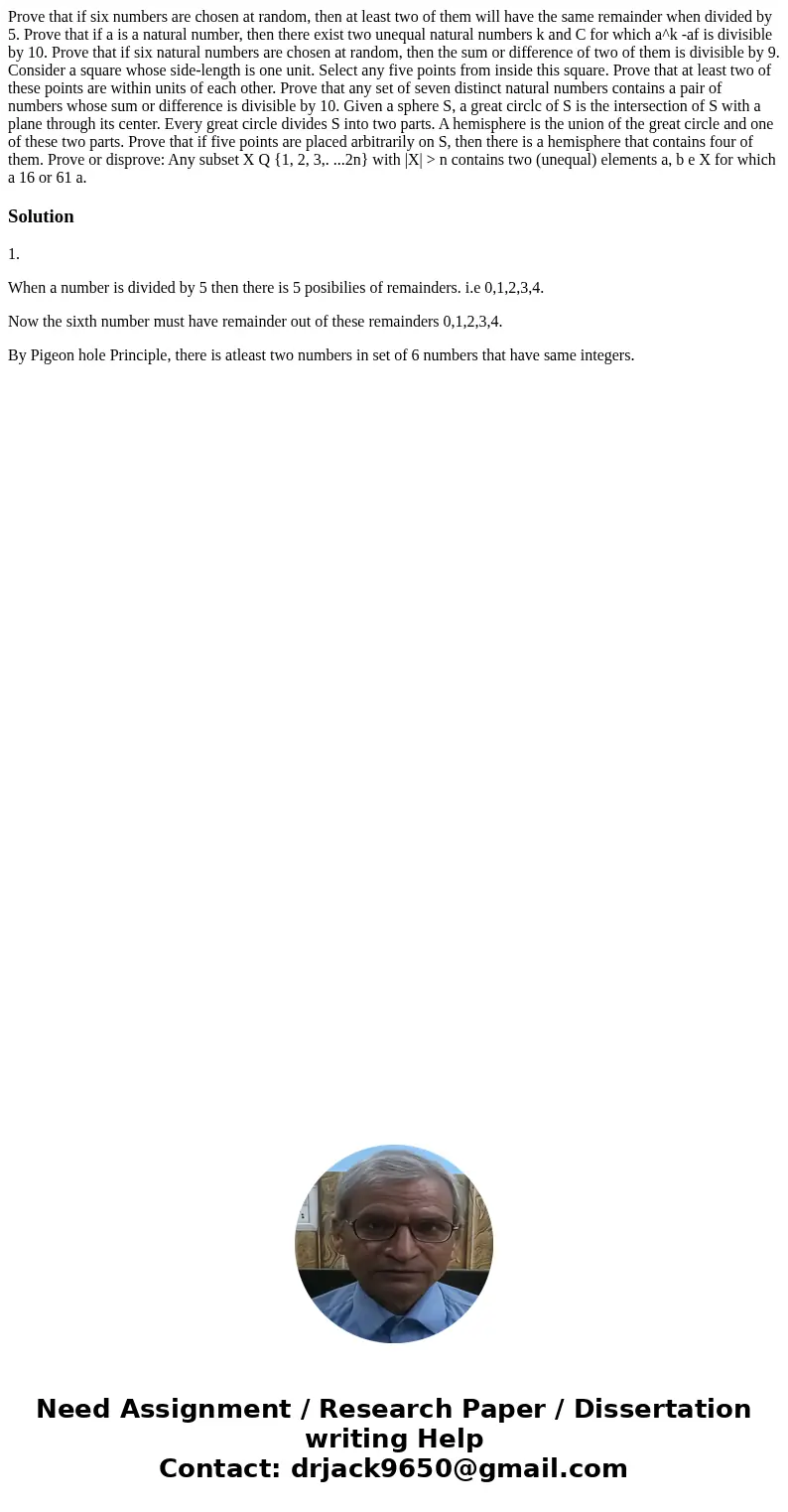Prove that if six numbers are chosen at random then at least
Prove that if six numbers are chosen at random, then at least two of them will have the same remainder when divided by 5. Prove that if a is a natural number, then there exist two unequal natural numbers k and C for which a^k -af is divisible by 10. Prove that if six natural numbers are chosen at random, then the sum or difference of two of them is divisible by 9. Consider a square whose side-length is one unit. Select any five points from inside this square. Prove that at least two of these points are within units of each other. Prove that any set of seven distinct natural numbers contains a pair of numbers whose sum or difference is divisible by 10. Given a sphere S, a great circlc of S is the intersection of S with a plane through its center. Every great circle divides S into two parts. A hemisphere is the union of the great circle and one of these two parts. Prove that if five points are placed arbitrarily on S, then there is a hemisphere that contains four of them. Prove or disprove: Any subset X Q {1, 2, 3,. ...2n} with |X| > n contains two (unequal) elements a, b e X for which a 16 or 61 a. 
Solution
1.
When a number is divided by 5 then there is 5 posibilies of remainders. i.e 0,1,2,3,4.
Now the sixth number must have remainder out of these remainders 0,1,2,3,4.
By Pigeon hole Principle, there is atleast two numbers in set of 6 numbers that have same integers.

 Homework Sourse
Homework Sourse